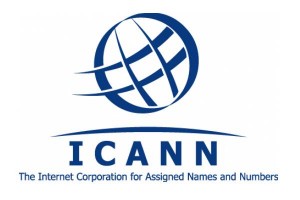New GTLD’s to Change the Internet Forever
As you may or may not be aware, ICANN the Internet Corporation for Assigned Names and Numbers has opted to open the floodgates, and expand the number of potential web addresses available to us online. While mainstays such as .com, .net, and .org will not be directly affected, we’re about to be introduced to a whole new world of domain names. You’ve probably already seen some new TLD’s or top level domains (the word or letters to the right of the dot) such as .Biz, .TV, .XXX and .Me. If you are still unfamiliar with the basics, you can learn a bit about them here. The norm is about to change, prepare to be subjected to hundreds and potentially thousands of new gTLD’s starting within a year.
There are two distinct types of TLD. There’s a gTLD and a ccTLD. A gTLD is a generic top level domain. There are currently only 22 in existence and they are .com .edu .gov .int .mil .net .org .arpa .aero .biz .coop .info .museum .name .pro .asia .cat .jobs .mobi .tel and .travel. A ccTLD is a country code top level domain, assigned to a particular country. These include .ca for Canada, .fr for France, and .de for Germany. Some of these require that you live or do business within the country to own them, others such as .co for Columbia and .TV for Tuvalu allow anyone to register them.
ICANN is a nonprofit, private orgnaization created in 1998 to essentially manage and oversee the internet. A rising complaint among those conducting business online has been that all of the good domain names are taken. When it comes to .com, every single domain name with 1-4 letters has been registered and the five letter combinations are selling fast. To combat this issue, ICANN began accepting applications for new generic top level domains (gTLDs) this year. The application period to own a new TLD lasted for four months from January through April, and has now been closed.
In order to apply for a new gTLD, an applicant needed to pay the $185,000 application fee, while being able to demonstrate the infrastructure to be able to efficiently provide these names for sale according to ICANN guidelines. The total investment to get a new gTLD is thus estimated to be in the ballpark of $500,000, with recurring $25,000 annual fees on top of that. According to respected domain investor and columnist Michael Berkens, 2,305 applications were received during the initial application period. That doesn’t mean there will be that many new approved extensions (TLDs), as multiple companies applied for the same gTLDs. In the event of multiple applications, the name will go to whom is deemed the more appropriate party, or be sent to an auction between equally viable candidates.
A glitch in the ICANN system inadvertently unleashed some of the names that were applied for. There are some names you can expect, and definitely some surprises. Here’s a few names you can expect to be navigating to soon.
.shop .site .web .art .music .mail .phone .app .hotel .poker .casino .vegas .tokyo .miami .love .family .food .bank .money .eco .green .free .one .peace .paris .nyc .book .game .real .fashion .salon .hiv .hawaii .surf .bike .ski
Essentially all of the golden generic names that have been registered over time to the left of the dot are the commodities being sought by investors and interested parties in new gTLD’s. Within each new gTLD’s, the controlling business owner will be able to sell every single combination of characters to the left of the dot that they want. They can withhold as many names as they want, charge premium prices for others, and release certain ones to the public. Not only will we be living in a world where Altitude.TV, England.Eu, and Meet.Me are commonplace, companies will start to rebrand their online precense as NewYork.Law or Doctor.NYC. Go.Green, Vegas.Casino and Casino.Vegas will all be possibilities whose price will be determined by the owner of the TLD.
This will open up a whole new world for domain squatters, people who buy the brand name of another with the intention of profiting from it. There are now going to be hundreds of more opportunities for squatters to own a piece of the established brand pie. McDonalds.Web, PaulMitchell.Salon and JambaJuice.NYC are potential targets. According to ICANN, they will not allow reservations of names based on trademarks, but they will require new gTLD owners to have what is called a ‘sunrise period’ where individual trademark names can be reserved by companies. What this brand protection will cost companies has been a huge point of debate and frustration.
A similar concern is how Google will rank all of these new pages in the search results. Will established TLDs such as .com and .net receive favoritism? Will it be a level playing field for all domains? Will NewYork.Lawyer outrank NewYorkLawyer.com in the search ratings? The difference in this can mean thousands or millions of customers, and in turn, a lot of money.
This entire TLD application process has opened up a can of worms with ramifications certain to none. How the process will this affect the resale value of .com’s and other established TLD’s has been the source of great debate. Astounde had the privilege of speaking to domain veterans Morgan Linton of Appraiso.com and Michael Law of NameTalent.com, both of whom agree that .com is a behemoth that will stick around as the top TLD “until the end of time or the internet.” They also were in agreement that it will take most of these new TLD’s several years if not decades to gain mainstream traction. The main issues to watch moving forward are those of brand protection and trademark infringement, as well as how established TLD’s fare in the aftermath of the new ones, how the new ones are operated, and which ones go under from lack of interest in their product offering.
Comments
Tags: generic top level domains, icann, new domain names, new domains, new gtlds, new tld problems, new web addresses, online brand protection, tld problems
Trackback from your site.




Comments (2)
Maven
| #
My concern is the level of traffic, will the internet slow down with so many more roads to travel? Perhaps though, we will have a brief period of privacy as the trackers attempt to catch up with the expansion. That could be good.
Reply
Denver Domainers Unite: RMDC 2012 at Chloe - 303 Magazine
| #
[...] top stories in the domain world for the last few years on NameTalent.com; focusing mainly on the new TLD program, high dollar sales, and gripping [...]
Reply